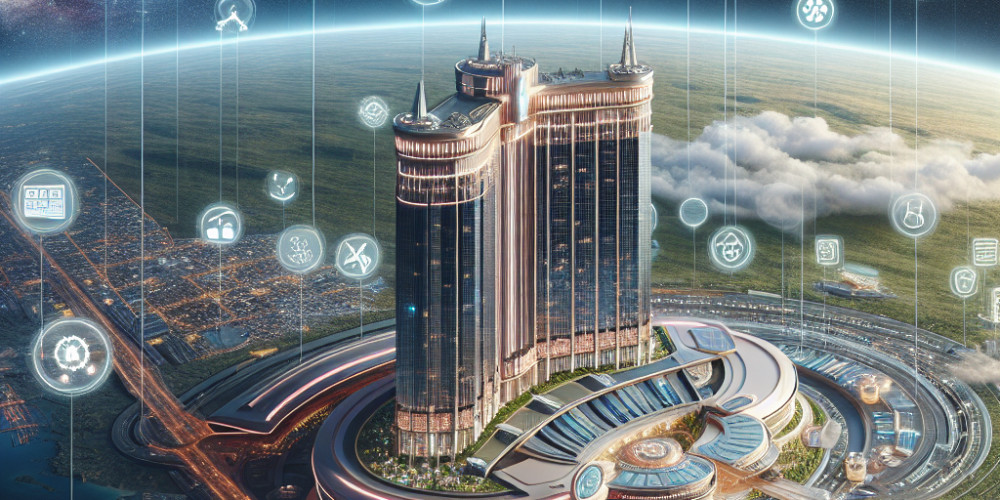The Philippines’ casino sector has embarked on a transformative journey that underscores the country’s progressive regulatory framework and adaptability in an evolving global market. The recent announcement by the Philippine Amusement and Gaming Corporation (PAGCOR) on August 15, 2023, clearly delineates a strategic expansion in regulatory practices intended to enhance economic growth while ensuring responsible gaming.
This landmark regulatory decision allows for the establishment of new integrated resorts in emerging tourist destinations, aiming to boost local economies and attract international tourists. This move is part of a broader initiative to diversify entertainment and leisure options available within the country, reflecting a robust confidence in the region’s potential to become a major player in the international gaming and hospitality industry. This strategic shift is expected to draw significant foreign investment, create job opportunities, and further integrate the Philippines into the global tourism and leisure market.
The decision was spurred by a comprehensive analysis of the Asian gaming market, with a keen focus on successful models in Macau and Singapore. The Philippines aims to replicate these success stories by creating a highly regulated, safe, and attractive gaming environment. PAGCOR’s proactive approach in revising and expanding gaming licenses demonstrates a clear commitment to fostering a transparent and competitive industry that prioritizes both economic benefits and social responsibility.
In line with these developments, stakeholders within and outside the Philippines have lauded the regulatory enhancements. Industry analysts predict a surge in investment flows into the country’s gaming sector, driven by greater clarity and improved governance structures. According to James Sullivan, a senior analyst at a reputable global gaming consultancy, “The Philippines is setting a benchmark in the Asian region with its forward-looking gaming policies. This is likely to catalyze a new era of growth and innovation in the sector.”
In response to concerns about the social implications of expanded gaming activities, PAGCOR has outlined stringent measures to promote responsible gaming and mitigate problem gambling. These include setting up a national self-exclusion program and mandatory responsible gaming training for casino staff. Such initiatives underscore a balanced approach to expanding the casino industry while maintaining high ethical standards and social accountability.
Moreover, the new regulations incorporate sophisticated technological solutions to ensure gambling integrity and security. Advanced surveillance systems and AI-driven analytics will be deployed to monitor unusual activities and ensure compliance with regulatory standards, highlighting the integration of technology in regulatory frameworks.
However, this initiative is not without its critics. Some local businesses express concerns about the potential social costs associated with gambling, including increases in gambling addiction and its impact on families. Community leaders are calling for a portion of the revenues from the new resorts to be reinvested in public health and education programs. These voices underscore the need for a holistic approach to development that considers economic gains alongside community well-being.
Despite these challenges, the Philippine government remains optimistic about the positive economic impact of expanded gaming opportunities. With tourism numbers expected to rise, the overall economic contribution of the gaming sector is anticipated to significantly bolster the national economy.
In addition to direct economic benefits, the new integrated resorts are expected to promote cultural exchange and international goodwill. By showcasing Filipino hospitality and culture, alongside world-class gaming and entertainment facilities, the Philippines could cement its status as a premier global destination for tourists and leisure seekers.
Looking ahead, the success of this regulatory expansion will largely depend on continued collaboration between government regulators, industry players, and community stakeholders. It will also hinge on the industry’s ability to adapt to an increasingly digital and connected world while upholding high standards of integrity and social responsibility.
In conclusion, the Philippines’ proactive regulatory strategy in the casino and gaming industry not only exemplifies its adaptation to global market trends but also highlights its commitment to sustainable and responsible economic development. As stated by Andrea Domingo, CEO of PAGCOR, “Our vision is to see the Philippines emerge as a beacon of responsible and progressive gaming in Asia. We are committed to balancing economic benefits with social values to achieve long-term success for all stakeholders involved.”
The forthcoming years will reveal the full impact of these regulatory innovations, potentially setting a precedent for other nations in the region striving to harmonize economic aspirations with social imperatives in the gaming sector.

Garry Sputnim is a seasoned journalist and storyteller with over a decade of experience in the trenches of global news. With a keen eye for uncovering stories that resonate, Alex has reported from over 30 countries, bringing light to untold narratives and the human faces behind the headlines. Specializing in investigative journalism, Garry has a knack for technology and social justice issues, weaving compelling narratives that bridge tech and humanity. Outside the newsroom, Garry is an avid rock climber and podcast host, exploring stories of resilience and innovation.
















